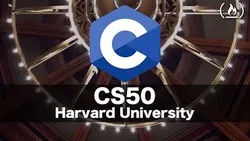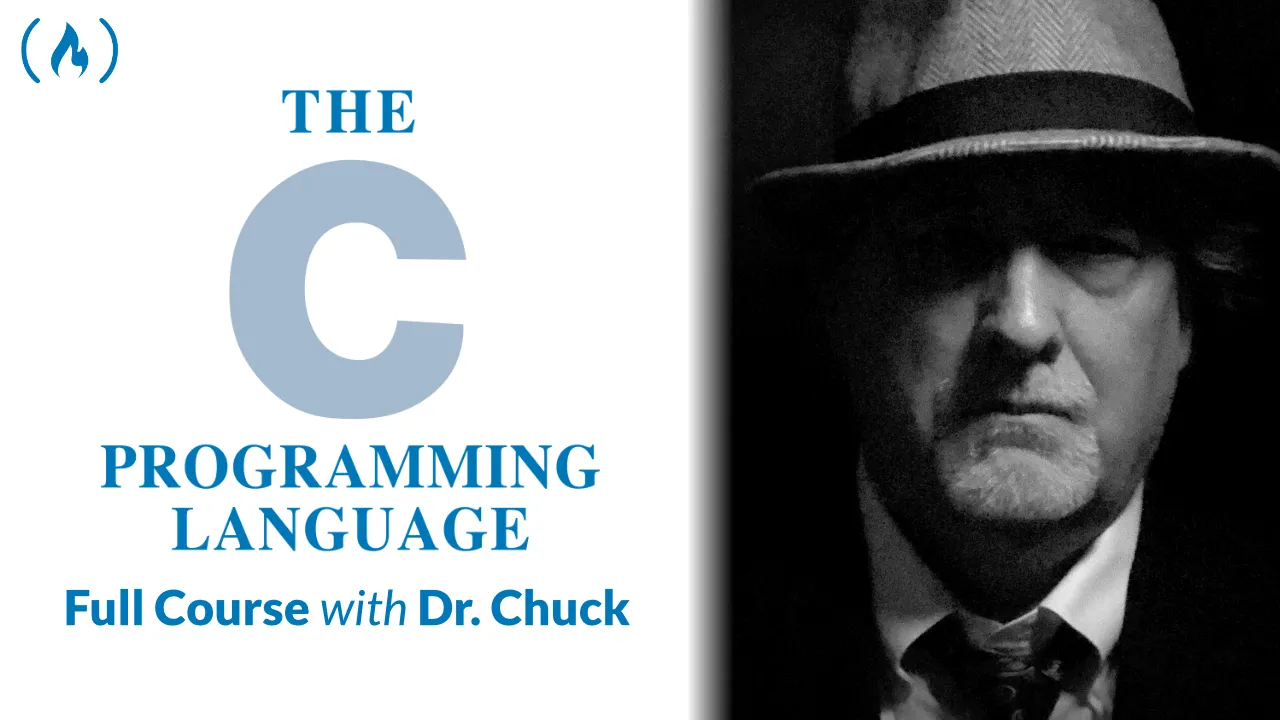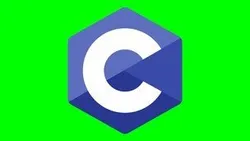
C Programming Language - Intro to Computer Science - Harvards CS50 (2018) 
This course introduces students to the C Programming Language and the fundamentals of computer science. In Week 0, students reviewed the basics of programming and PBJ. In the following weeks, they learned about variables, incrementing, conditionals, while and for loops, user input, CS50 Sandbox, hello.c, compilation, and command-line arguments. By the end of the course, students had a strong foundation in C programming and computer science. ▼
ADVERTISEMENT
Course Feature
![]() Cost:
Cost:
Free
![]() Provider:
Provider:
freeCodeCamp
![]() Certificate:
Certificate:
Paid Certification
![]() Language:
Language:
English
![]() Start Date:
Start Date:
On-Demand
Course Overview
❗The content presented here is sourced directly from freeCodeCamp platform. For comprehensive course details, including enrollment information, simply click on the 'Go to class' link on our website.
Updated in [February 21st, 2023]
This course provides an introduction to the C programming language, which is a fundamental language for computer science. It covers topics such as variables, incrementing, conditionals, while loops, for loops, user input, compilation, command-line arguments, debugging, and more. Learners will gain a basic understanding of the C language and how to use it to write programs.
Possible development paths for learners include furthering their knowledge of computer science and programming languages, such as C++, Java, and Python. Learners can also pursue a career in software engineering, web development, or data science.
Learning suggestions for learners include exploring other programming languages, such as C++, Java, and Python. Learners should also practice writing programs in C and debugging them. Additionally, learners should read up on computer science topics, such as algorithms and data structures.
[Applications]
After completing the course C Programming Language - Intro to Computer Science - Harvards CS50 (2018), students can apply their knowledge to create programs that use variables, conditionals, loops, user input, and command-line arguments. They can also use the CS50 Sandbox to debug and compile their programs. Additionally, they can use the concepts of int, float, and overflow to create programs such as hello.c, int.c, float.c, ints.c, floats.c, parity.c, conditions.c, answer.c, cough0.c, cough1.c, cough2.c, cough3.c, and positive.c.
[Career Paths]
1. Software Developer: Software developers create, test, and maintain software applications and systems. They use programming languages such as C to develop software solutions. As technology advances, software developers must stay up to date on the latest trends and tools to remain competitive.
2. Computer Programmer: Computer programmers use programming languages such as C to write code for software applications and systems. They must be able to debug and troubleshoot code to ensure that the software runs properly. As technology advances, computer programmers must stay up to date on the latest trends and tools to remain competitive.
3. Systems Analyst: Systems analysts use programming languages such as C to analyze and design software applications and systems. They must be able to identify and solve problems in order to ensure that the software runs properly. As technology advances, systems analysts must stay up to date on the latest trends and tools to remain competitive.
4. Database Administrator: Database administrators use programming languages such as C to design, develop, and maintain databases. They must be able to optimize databases to ensure that the data is secure and accessible. As technology advances, database administrators must stay up to date on the latest trends and tools to remain competitive.
Course Provider

Provider freeCodeCamp's Stats at AZClass
Discussion and Reviews
0.0 (Based on 0 reviews)
Explore Similar Online Courses

Ansible: Setup Configure and Ad Hoc Commands Deep Dive

Microsoft Access Tutorial - Beginners Level 1 (Quick Start)

Python for Informatics: Exploring Information

Social Network Analysis

Introduction to Systematic Review and Meta-Analysis

The Analytics Edge

DCO042 - Python For Informatics

Causal Diagrams: Draw Your Assumptions Before Your Conclusions

Whole genome sequencing of bacterial genomes - tools and applications

Learn C Programming Using the Classic Book by Kernighan and Ritchie

C Programming: Modular Programming and Memory Management - 3


Start your review of C Programming Language - Intro to Computer Science - Harvards CS50 (2018)